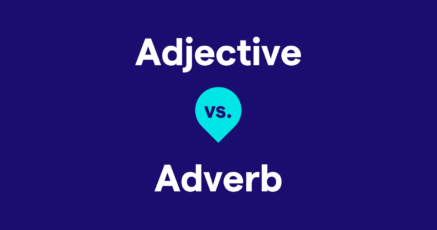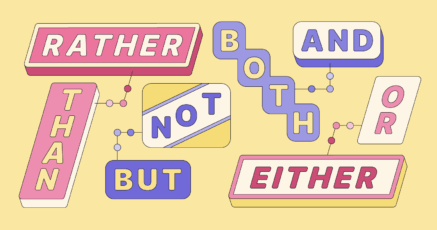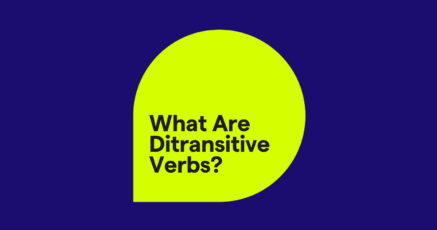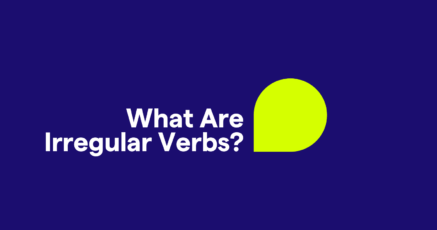Parts of Speech - Page 5
 Adjectives and Adverbs: What’s the Difference?An adjective is a word that describes nouns, such as large or beautiful, and an adverb is a word that describes verbs,...August 31, 2022
Adjectives and Adverbs: What’s the Difference?An adjective is a word that describes nouns, such as large or beautiful, and an adverb is a word that describes verbs,...August 31, 2022 Transitive Verbs: Definition and ExamplesTransitive verbs are verbs that take an object, which means they include the receiver of the action in the sentence. In the...August 4, 2022
Transitive Verbs: Definition and ExamplesTransitive verbs are verbs that take an object, which means they include the receiver of the action in the sentence. In the...August 4, 2022 Linking Verbs: Definition and ExamplesLinking verbs are verbs that don’t show an action but rather describe the subject. While verbs like walk or jump represent an...July 29, 2022
Linking Verbs: Definition and ExamplesLinking verbs are verbs that don’t show an action but rather describe the subject. While verbs like walk or jump represent an...July 29, 2022 A Guide to Impersonal Verbs, With Definitions and ExamplesImpersonal verbs are verbs that do not use a specific subject, but instead use the generic subject it. They’re often called...April 29, 2022
A Guide to Impersonal Verbs, With Definitions and ExamplesImpersonal verbs are verbs that do not use a specific subject, but instead use the generic subject it. They’re often called...April 29, 2022 What Is a Correlative Conjunction?Correlative conjunctions are one of the three types of conjunctions. (The others are subordinating conjunctions and coordinating...March 31, 2022
What Is a Correlative Conjunction?Correlative conjunctions are one of the three types of conjunctions. (The others are subordinating conjunctions and coordinating...March 31, 2022 What Is a Mass (Uncountable) Noun?Mass nouns, also known as “uncountable nouns” or “noncount nouns,” are nouns representing something that cannot be counted. A...March 21, 2022
What Is a Mass (Uncountable) Noun?Mass nouns, also known as “uncountable nouns” or “noncount nouns,” are nouns representing something that cannot be counted. A...March 21, 2022 Ditransitive Verbs in English, ExplainedVerbs aren’t just verbs. As you know from studying the different parts of speech, just about every word in the English language...March 16, 2022
Ditransitive Verbs in English, ExplainedVerbs aren’t just verbs. As you know from studying the different parts of speech, just about every word in the English language...March 16, 2022 What Is an Adverbial Clause?Sometimes, a sentence might make its point perfectly clear, but still need a little extra description. When you come across a...January 18, 2022
What Is an Adverbial Clause?Sometimes, a sentence might make its point perfectly clear, but still need a little extra description. When you come across a...January 18, 2022 What Is an Adjective Phrase?Adjective phrases are one of the many kinds of phrases you use in your speech and writing every day. With adjectives, you...December 27, 2021
What Is an Adjective Phrase?Adjective phrases are one of the many kinds of phrases you use in your speech and writing every day. With adjectives, you...December 27, 2021 List of Irregular Verbs With Rules and ExamplesIrregular verbs are verbs that do not follow the normal pattern of conjugation to express tenses and past participles. Unlike...November 15, 2021
List of Irregular Verbs With Rules and ExamplesIrregular verbs are verbs that do not follow the normal pattern of conjugation to express tenses and past participles. Unlike...November 15, 2021